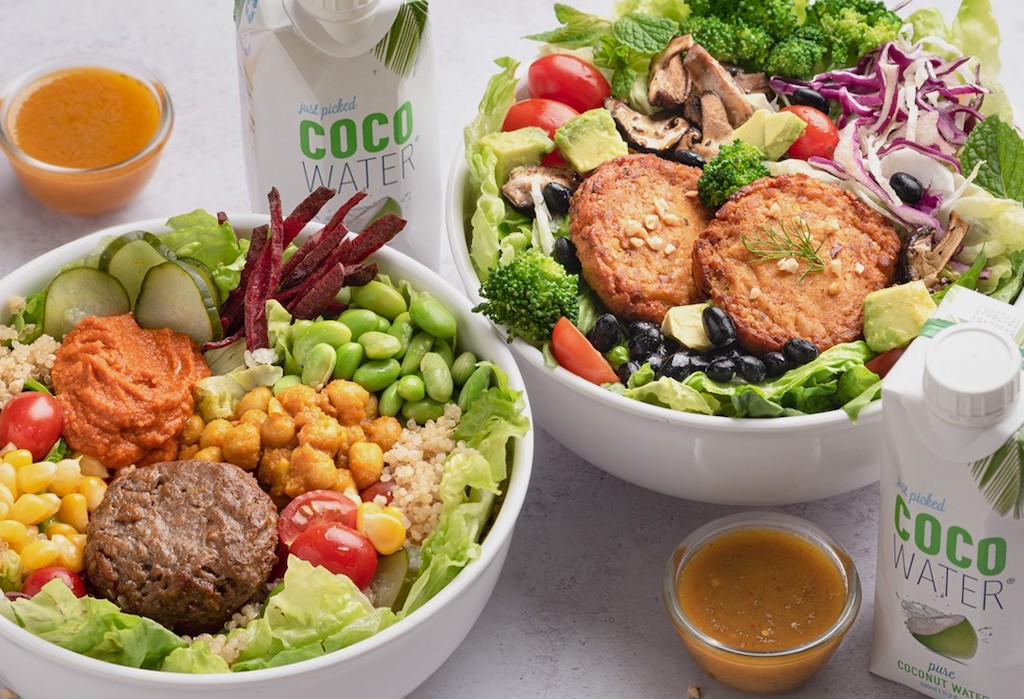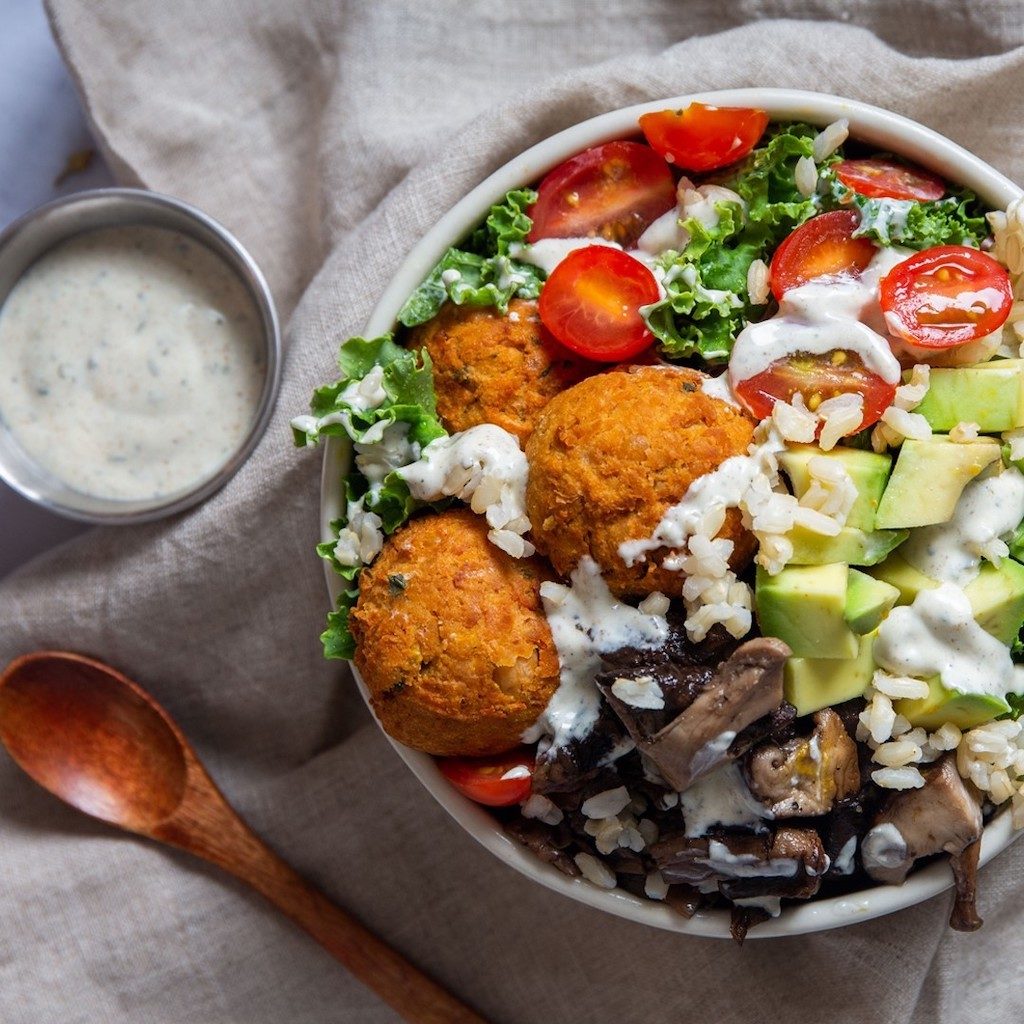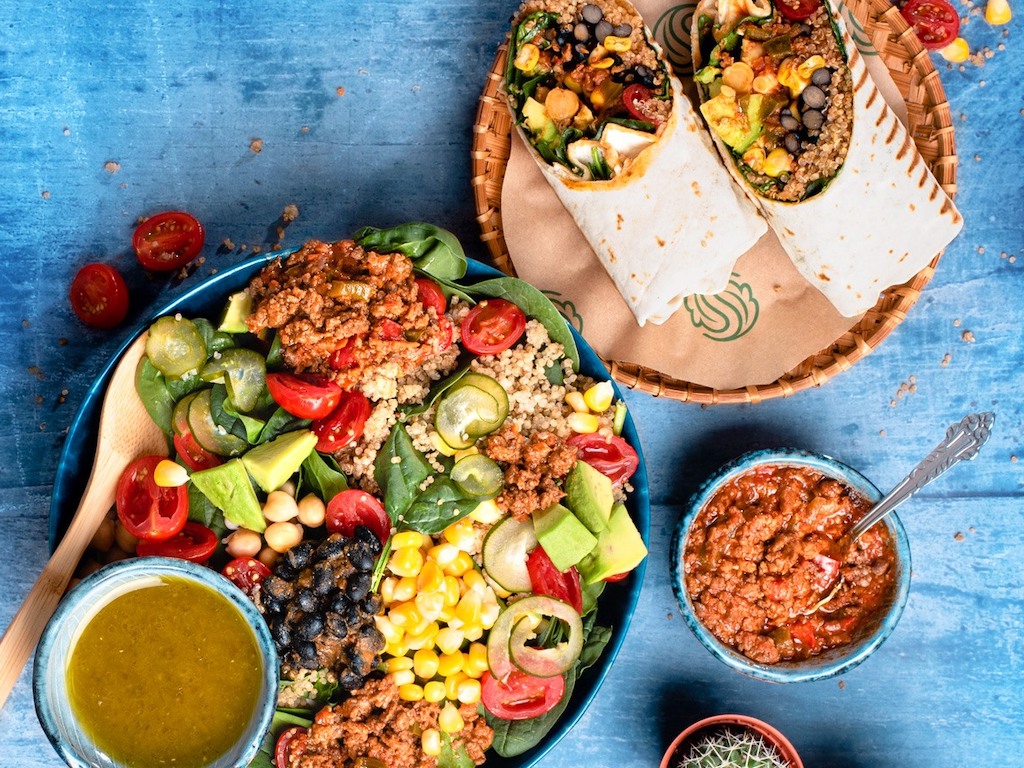4 Mins Read
SaladStop, the Singapore-headquartered healthy salad chain with locations across Asia, has carbon labelled its entire menu, making it the first restaurant in the region to do so. Describing the move as a “simple and convenient way for customers to make planet-friendly food choices”, the chain’s commitment comes as more F&B businesses begin to take up carbon labelling as part of their sustainability strategy.
SaladStop has added carbon information to its entire salad bar menu, becoming the first restaurant chain in Asia to jump on the carbon labelling bandwagon. The chain, which operates outlets across Singapore, Hong Kong, Indonesia, Japan, South Korea, Vietnam and the Philippines, as well as Spain outside of Asia, says that the new labels, available on its online pre-ordering system, are aimed at encouraging more of their customers to think about the footprint of their food choices.
“We want to help people realise that our food, our communities and our environment are all connected. We believe that food should not only be delicious and nutritious for our bodies, it should also promote the wellbeing of the environment,” said co-owner and director Katherine Braha.

We want to help people realise that our food, our communities and our environment are all connected.
Katherine Braha, Co-Owner & Director, SaladStop
Each label on SaladStop’s menu offerings will reflect the total estimated carbon dioxide equivalent associated with the production of the ingredients in the dish. Production is by far the most important determinant of the carbon footprint of foods, and takes into account everything from agricultural farming practices, to land usage and water wastage, or whether it contributed to deforestation and methane emissions, in the case of livestock production.
Some of the least carbon-intensive menu items afvailable at SaladStop are their vegan bowls, wraps and salads, given that animal agriculture drives almost a fifth of global greenhouse gases. Some of these vegan options available at the chain include the Beyond Me, which contains the plant-based beef patty developed by Beyond Meat, or the Earth Bowl, featuring their homemade plant protein patties, baked mushrooms, broccoli and cherry tomatoes.

SaladStop says that it hopes customers will be able to make better, more environmentally-friendly decisions after making this information more visible.
“We are providing options that are healthy for our customers and healthy for the planet. We want to provide a simple and convenient way for customers to make planet-friendly food choices,” explains Braha.
In addition to rolling out carbon footprint information of its dishes, the chain has also partnered with Singapore-based green tech startup Handprint to offer its customers the ability to “go climate positive” by supporting mangrove reforestation projects. According to the firm, this option will compensate for the greenhouse gas emissions of each individual’s SaladStop order by 20-fold.
We want to provide a simple and convenient way for customers to make planet-friendly food choices.
Katherine Braha, Co-Owner & Director, SaladStop

To ensure transparency, customers will be able to track the impact of their offsetting efforts through SaladStop’s webpage, following the real-time satellite monitoring powered by Handprint’s blockchain technology.
Although still a relatively novel concept, carbon footprint labels are slowly but steadily being adopted by the F&B industry, as more consumers begin to couple the impact of their dietary choices and are asking brands to offer more sustainable options.
Just Salad, for instance, famously became the first U.S. restaurant chain to take the initiative, and has gone the extra mile to add more plant-based cheese options to its menu in order to encourage a shift away from carbon-intensive dairy consumption. Other food companies such as Upfield, the maker of plant-based spreads like Flora and Becel, as well as legacy meat-free brand Quorn, have also added carbon labels to their products.
All images courtesy of SaladStop.




